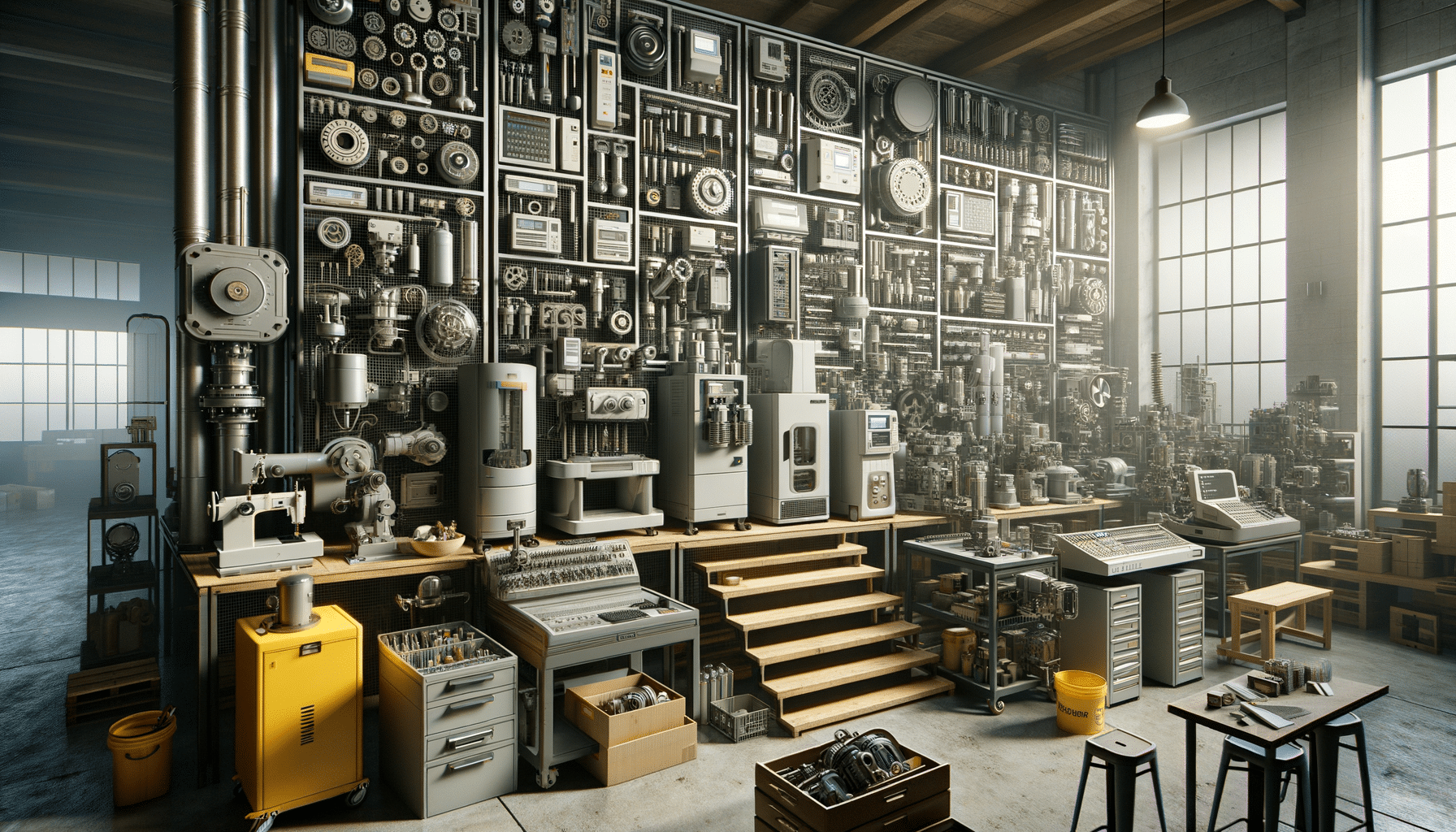Introduction to Industrial Machines
In today’s fast-paced world, the demand for efficiency and productivity has never been greater. Industrial machines play a crucial role in meeting these demands, offering solutions that streamline tasks and enhance output in various settings. From large-scale manufacturing plants to small home workshops, these machines are indispensable tools that transform the way we work. By automating repetitive tasks and ensuring precision, industrial machines not only boost productivity but also improve the quality of output, making them essential in both business and home environments.
Types of Industrial Machines
Industrial machines come in a variety of forms, each designed to serve specific purposes. Some of the most common types include:
- CNC Machines: These computer-controlled devices are used for precise cutting, milling, and drilling. They are highly valued for their accuracy and efficiency in producing complex parts.
- 3D Printers: Revolutionizing the manufacturing industry, 3D printers allow for the creation of three-dimensional objects from digital models by layering materials.
- Robotic Arms: Often used in assembly lines, robotic arms can perform tasks such as welding, painting, and material handling with speed and precision.
- Conveyor Systems: These systems facilitate the movement of materials and products within a facility, reducing manual labor and speeding up processes.
Each type of machine has its unique features and applications, making it vital to choose the right one based on specific needs and operational goals.
Benefits of Using Industrial Machines
The integration of industrial machines into workflows offers numerous advantages:
- Increased Efficiency: Machines can operate continuously without fatigue, significantly boosting productivity compared to manual labor.
- Consistency and Quality: Machines provide uniform output, reducing the likelihood of errors and ensuring high-quality products.
- Cost Savings: Although the initial investment can be substantial, the long-term savings in labor costs and increased production often outweigh the expenses.
- Safety: Automating hazardous tasks reduces the risk of workplace injuries, creating a safer environment for workers.
These benefits make industrial machines a worthwhile investment for businesses looking to enhance their operations and for hobbyists aiming to improve their craft.
Industrial Machines in Home Settings
While industrial machines are typically associated with large-scale operations, they are increasingly finding their way into home workshops. With the rise of DIY culture and home-based businesses, tools like 3D printers and CNC routers have become more accessible to enthusiasts and entrepreneurs. These machines empower users to create custom parts, prototypes, and even finished products from the comfort of their homes.
For instance, a home-based jewelry maker can use a CNC machine to cut intricate designs with precision, while a hobbyist can use a 3D printer to bring their creative ideas to life. This accessibility not only enhances personal projects but also opens up opportunities for small-scale production and innovation.
Choosing the Right Industrial Machine
Selecting the appropriate industrial machine requires careful consideration of various factors:
- Purpose: Clearly define the tasks you need the machine to perform and choose a model that meets those requirements.
- Budget: While cost is a critical factor, it’s essential to balance initial expenses with long-term benefits and savings.
- Space: Ensure that you have adequate space to accommodate the machine and any additional equipment it may require.
- Technical Support: Opt for machines from manufacturers that offer reliable customer support and maintenance services.
By taking these considerations into account, individuals and businesses can make informed decisions that align with their operational goals and maximize the value of their investment in industrial machines.
Conclusion: Embracing Industrial Machines for Future Growth
Industrial machines have become integral to modern workflows, whether in large industrial settings or small home workshops. By enhancing efficiency, ensuring quality, and providing cost-effective solutions, these machines empower users to meet the demands of today’s competitive landscape. As technology continues to evolve, the capabilities of industrial machines will expand, offering even more opportunities for innovation and growth. Investing in the right machines today can pave the way for future success, making them a vital component of any forward-thinking strategy.




Leave a Reply